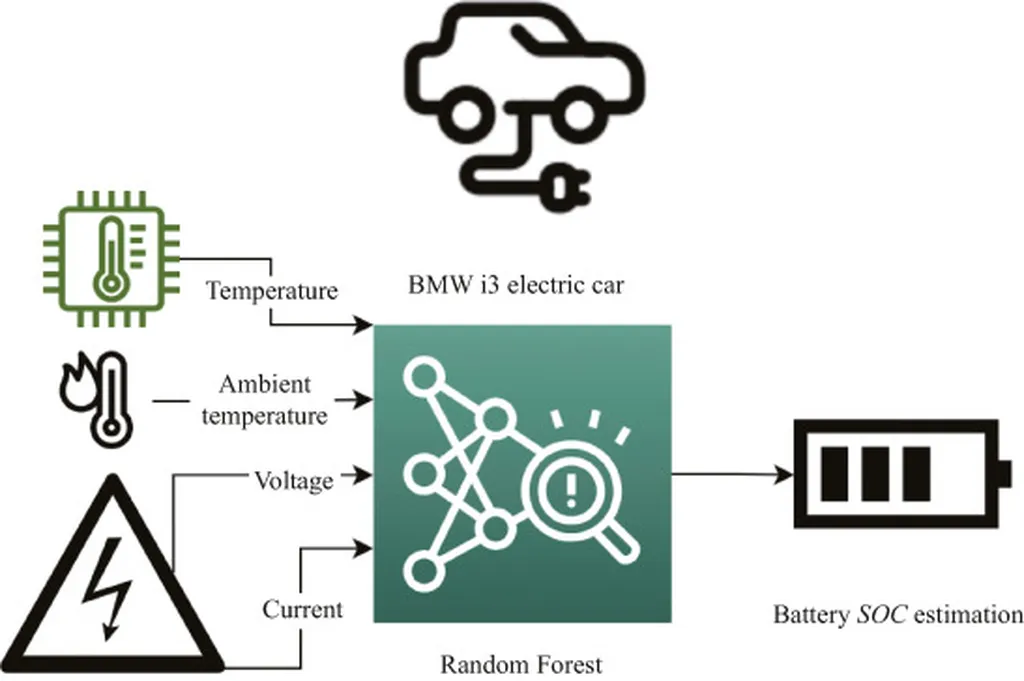In the rapidly evolving landscape of electric vehicles (EVs), accurate battery management is paramount, and a recent study published in the *Journal of Franklin Institute* offers a promising advancement in this critical area. Researchers led by Mohd Herwan Sulaiman from the Faculty of Electrical and Electronics Engineering Technology at Universiti Malaysia Pahang Al-Sultan Abdullah (UMPSA) have developed a novel approach to estimating the state of charge (SoC) of EV batteries using a hybrid algorithm that combines the CatBoost machine learning technique with metaheuristic optimization.
The study, which leveraged data from 72 real-world driving trips of a BMW i3, demonstrates how this innovative method could significantly enhance the operational efficiency and reliability of electric vehicles. “Our goal was to improve the accuracy and robustness of SoC estimation, which is essential for extending battery life and optimizing vehicle performance,” Sulaiman explained. The research team employed a rigorous data preprocessing pipeline, including missing value treatment, outlier removal, and feature normalization, to ensure the integrity of their dataset.
One of the standout findings of the study is the superior performance of the Barnacles Mating Optimizer (BMO) integrated with CatBoost. This combination achieved the best-case metrics, with a root mean square error (RMSE) of 6.1031, a mean absolute error (MAE) of 4.1303, and an R² value of 0.8211. These results outperform other metaheuristic algorithms like Particle Swarm Optimization (PSO), Genetic Algorithm (GA), and Whale Optimization Algorithm (WOA) when paired with CatBoost.
The implications of this research are far-reaching for the energy sector, particularly in the realm of electric vehicle technology. Accurate SoC estimation is crucial for battery management systems, directly impacting the efficiency, reliability, and longevity of EV batteries. As the global shift towards sustainable energy solutions accelerates, innovations like this could play a pivotal role in making electric vehicles more viable and attractive to consumers.
Sulaiman’s work not only contributes to the advancement of battery management technology but also opens up new avenues for research in machine learning and metaheuristic optimization. The study’s findings suggest that hybrid algorithms could be the key to unlocking more precise and reliable battery management systems, ultimately driving the adoption of electric vehicles and other energy storage applications.
As the energy sector continues to evolve, the integration of advanced algorithms and optimization techniques will be essential in addressing the challenges of battery management. This research offers a glimpse into the future of energy storage technology, where machine learning and metaheuristic algorithms could revolutionize how we manage and utilize battery power.

